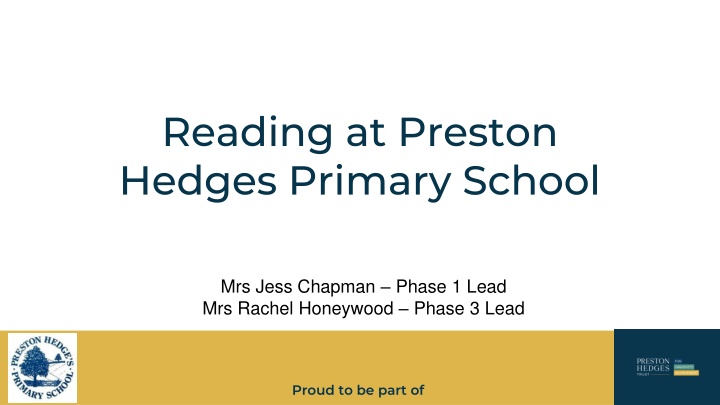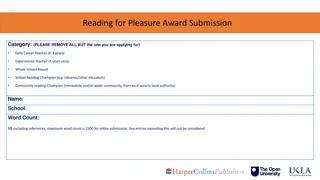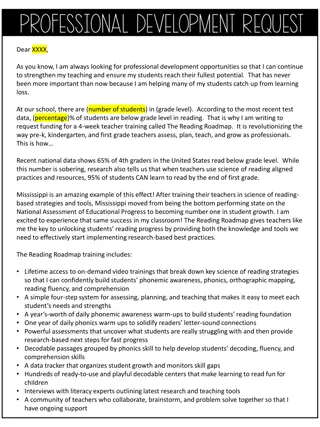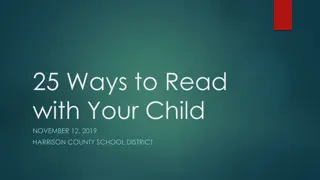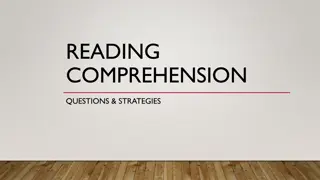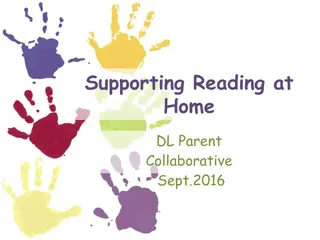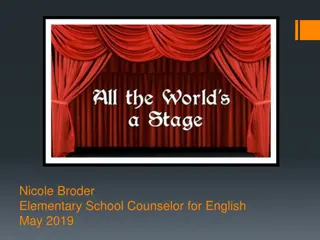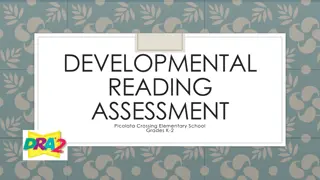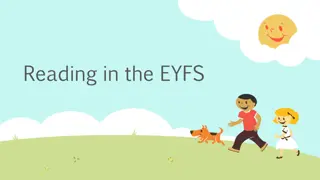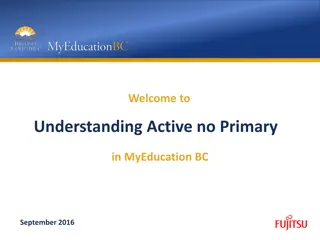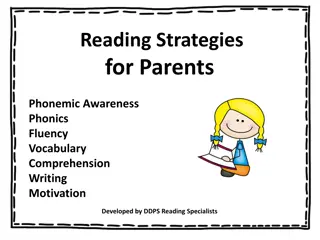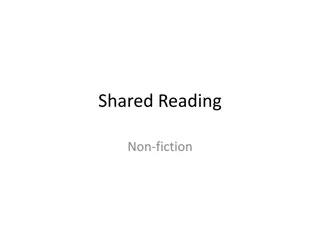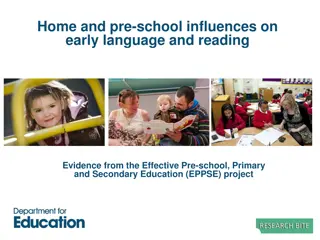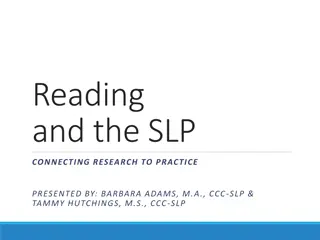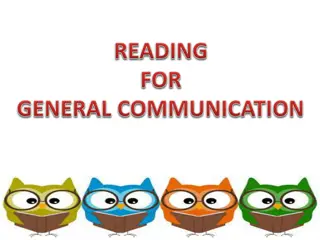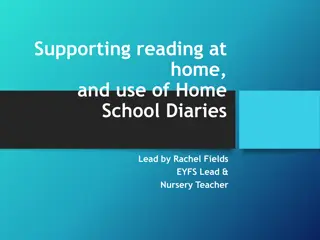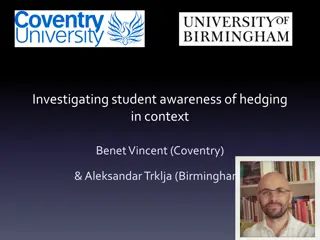Effective Reading Strategies at Preston Hedges Primary School
Utilizing a mix of phonics teaching, early reading techniques, automaticity, and fluency practices, Preston Hedges Primary School focuses on enhancing reading skills in young learners. Through a structured approach, including Essential Letters and Sounds, early comprehension development, and home support tips, the school aims to foster a love for reading and improve students' reading abilities. Incorporating shared comprehension sessions and a collaborative approach in KS2, the school emphasizes a holistic reading curriculum to enhance students' comprehension and critical thinking skills.
Download Presentation

Please find below an Image/Link to download the presentation.
The content on the website is provided AS IS for your information and personal use only. It may not be sold, licensed, or shared on other websites without obtaining consent from the author.If you encounter any issues during the download, it is possible that the publisher has removed the file from their server.
You are allowed to download the files provided on this website for personal or commercial use, subject to the condition that they are used lawfully. All files are the property of their respective owners.
The content on the website is provided AS IS for your information and personal use only. It may not be sold, licensed, or shared on other websites without obtaining consent from the author.
E N D
Presentation Transcript
Reading at Preston Hedges Primary School Mrs Jess Chapman Phase 1 Lead Mrs Rachel Honeywood Phase 3 Lead Proud to be part of
ELS Essential Letters and Sounds Daily teaching of phonics with additional intervention where necessary. Fast, interactive teaching style. Lots of repetition. Visual and practical reminders to keep learners engaged and to support development. Proud to be part of
Early Reading Application of phonics knowledge. First components of comprehension: modelling, sharing, discussing, questioning Teacher models decoding and blending. Develop a love of reading. Encouraging ownership. Weekly reading in KS1. Proud to be part of
Automaticity and Fluency When we achieve automaticity in a skill, we no longer have to consciously think about each individual step in the process. Automatic skilled performance develops with extended practice after a high level of accuracy has been reached. Reading, is a complex process. It requires two key separate but inter-related skills word identification and comprehension. In reading, automaticity is the ability to rapidly, effortlessly and accurately recognise or decode words. Expert readers are able to decode words with minimal attention to the activity of decoding. There are few words they must sound out or closely examine, and they can instead accurately recognise words on sight. Proud to be part of
Ways to help at home Model thought processes about the book and encourage your child to do the same. Encourage automaticity by using new or previously discussed vocabulary in lots of different contexts Remind to blend in head Ownership of the child holding the book, taking control Child uses their fingers to guide them Spend time on title, explaining expectations of knowing certain words will likely repeat on every page, so we wouldn t want sounding out/blending every time they come across it. If it they struggle, allow them to try to tackle first. Step in and model how to blend in head and then reread with pace. Pick up on pace and fluency, so it s not stilted Acknowledge punctuation. Proud to be part of
KS2 Reading Comprehension Shared comprehension sessions will take place every week. Collaborative approach to text types reading together, discussing the text, sharing thoughts and opinions, comparing to other previously read texts. Recognition of question types, application of comprehension skills: retrieval, summary, inference, word meaning. Progressive from Y3-6. Often, children will tackle different question types based on the text that has been explored, then the teacher will model answers using the objective and success criteria to guide them. Assessment points will also inform teachers of progress in reading. Proud to be part of
KS2 Reading Analysis Collaborative approach children and teacher will share text together. Teacher will explicitly model the reading process before children apply this to their own reading. Wide range of texts used (fiction, non-fiction and poetry) with progressive learning objectives to support the teaching process. Focus on thoughts, responses and understanding of the text. Starting with vocabulary, children and teacher will discuss meaning, makeup of word (root, prefixes, suffixes) and where else they have seen the word. Reading around words children and staff will discuss word meaning based on clues in and around the word. Further understanding can be demonstrated by exploring the word in different contexts. Some children will have additional reading sessions that concentrate on fluency as well as comprehension and analysis. Proud to be part of
Reading in the Curriculum Sustained, individual reading sessions will be taking place in the afternoon, where children will read their own school reading book and staff will circulate the class, ensuring children can comprehend their text and can demonstrate developing fluency in their reading. Short-burst reading will be on offer in curriculum subjects to consolidate knowledge, recap prior learning and summarise learning. This will happen at the end of the lesson. Teachers will ensure that texts are varied in style to keep pupils engaged. Primary and secondary sources may be used as part of this for UKS2. Termly reading in KS2. Proud to be part of
Reading Recognition Reading at home 5 days a week (with a tick on the grid for KS2). Certificates can be earnt within each year group (these start again every year). Completed grids within each year will enable the child to get a prize from the vending machine. Additional ticks can be given by class teachers for excellent contributions to reading in the classroom. Reading Spine additional literature that children can read and report on, in order to win further prizes from the vending machine. Proud to be part of
Ways to help at home Encourage children to bring their school book and journal to school every day. Ask children about what they have read what they think, what they know and what they wonder. Encourage recognition of punctuation but also bold/italic/writing styles talk about purpose and impact on the reader. Proud to be part of
Any questions? Proud to be part of
